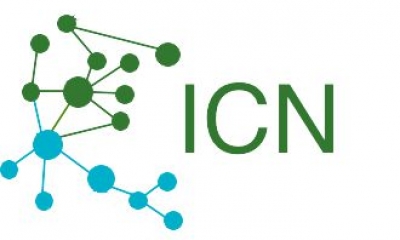University of Oxford
11a Mansfield Rd
OX1 3SZ
UK

About
The Interdisciplinary Conservation Network (ICN) is a bi-annual workshop that provides a select group of early-career researchers with a unique opportunity to produce a collaborative piece of research, take part in skill-building sessions, and develop global networks with fellow early career researchers. ICN 2020-21 is organised by the University of Oxford’s Interdisciplinary Centre for Conservation Science (ICCS) and Wildlife Conservation Research Unit (WildCRU), and the Oxford Brookes University Wildlife Trade Research Group. See here for more information.
ICN 2020-21
ICN 2020-2021 was a two-part workshop with an online and in-person component. This workshop replaced our original plan for an in-person only event in summer 2020 and is the third iteration of the ‘ICN’ model.
ICN included a series of virtual meetings September 2020 – July 2021, followed by a 3-day in person (hybrid) event in Oxford in July 2021. During the virtual meetings, 32 ECR participants and six mentors from around the world developed collaborative pieces of research with a tangible output based on their theme.
The three research themes included two specific to wildlife trade (focused on the linkages of human-felid conflict and wildlife trade, and online trade of wildlife products) and one theme on the value of examining the characteristics of conservationists themselves.
- Theme 1: A reflexive turn in conservation?
- Theme 2: A framework for studying online wildlife trade: challenges and opportunities.
- Theme 3: Illegal wildlife trade and human-felid conflict: a framework for evaluating linkages in the big-cat trade.
Virtual meetings
In September 2020, we held our kick-off meeting over Zoom for all attendees across the three themes. From then, each theme began to meet separately over Zoom. These virtual meetings were independently led by the theme leaders, with each theme meeting at least six times before the in-person event.
In-person event
During previous ICNs the in-person event was the kick-off to the collaborative research projects. However, in our structure the event was the ‘capstone’ to their months of ongoing work. This meant that attendees could spend more time gaining valuable skillsets tailored to them and their needs, while still moving forward with their theme’s research.
Skill-building sessions
These sessions provided our attendees with tangible, useful skills or knowledge that they could directly apply to their research and careers going forward. These topics were chosen by the participants for maximum relevancy.
Additionally, we offered two ‘Conservation stories’ sessions, which included more storytelling by the speakers regarding their topics (i.e. negative media attention and learning from failure).
Networking
ICN has fostered collaborative global networks that will serve participants throughout their careers in conservation science and practice. This ICN, in particular, has also served a unique and valuable function during COVID by providing a space for participants to meet and collaborate with colleagues internationally despite travel restrictions. This helps maintain social connectivity between otherwise isolated participants and allows participants to continue their overall career development despite a general dearth in current opportunities.
Outputs
Each theme is currently working to produce opinion pieces and scientific articles. Additionally, the reflexivity theme group is presenting at the Royal Anthropological Institute (RAI) 2021 conference and running a workshop at ICCB 2021.
We will post more information as outputs are finalised.


